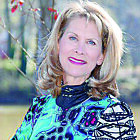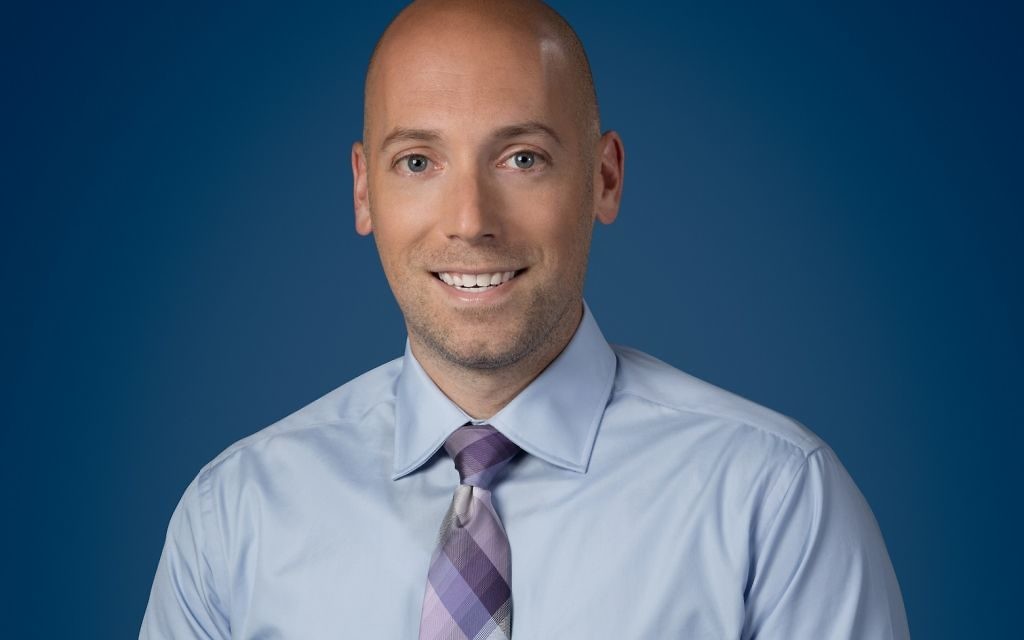Weather Channel’s Elliot Brings the Sunshine
The Weather Channel's Mark Elliot has undergraduate degrees in environmental science/physics and meteorology and a master’s from Georgia Tech.
“The trouble with weather forecasting is that it’s right too often to ignore it and wrong too often for us to rely on it,” financial technology entrepreneur Patrick Young has said.
Come under the umbrella as Jewish meteorologist Mark Elliot shares how he covered the severe weather of 2017, how technology is changing and how he is passionate for the science of it all. (Elliot is his on-air name at the Cobb County-based Weather Channel, not his real name.)
Elliot has undergraduate degrees in environmental science/physics and meteorology and a master’s from Georgia Tech in earth and atmospheric sciences. A husband and father, he is active at Ahavath Achim Synagogue, where he co-chairs the membership committee.
Get The AJT Newsletter by email and never miss our top stories Free Sign Up
Jaffe: As a child, were you fascinated with weather?
Elliot: Yes, I remember playing in the sandbox (in New Jersey), telling my oldest friend about the weather forecast. Then around age 7, a giant tree fell, and I was hooked. My father traveled to various VA hospitals for his job, and I followed his travels and studied various natural disasters.
Jaffe: I wonder if on-air meteorologists really know the science or are just performing a script.
Elliot: Oh, believe me, we know the science. Today’s computing speed is very rapid. There are instruments on every airplane that test the atmosphere for us to weigh averages, etc. Most of the Weather Channel data is from the National Weather Service and the European model. Note that the European model is superior to America’s. They have more computing power and pay in more vs. the U.S., who relies on tax dollars.
Jaffe: So you have the science part down. How do you become an on-air performer?
Elliot: Growing up, I was into theater and performed in “Bye Bye Birdie,” “Pippin” and “The Pirates of Penzance.” I did alter my New Jersey accent to not say “You guys!” A big challenge on air is correctly pronouncing some of the names of the smaller cities … understanding both the coasts and the mountains.
I had to get used to all soft drinks in Atlanta being referred to as Coke (laughing).
Jaffe: Speaking on air for four hours at a time without stammering seems daunting. Are you ever at a loss for words?
Elliot: Having been a radio broadcaster in college (Rutgers), there was no map, and I had to learn to talk to paint a picture with my words. Currently, I might be on air from 11 to 3 and have four hours pre-work with graphics, producers and teamwork. You know people need to see the storm on air to take it seriously.

Jaffe: What are some of the dangerous places you’ve been?
Elliot: Most recently I went to the Florida Keys post-Irma. It was like a war zone … with a curfew, no power, no clean water. I was there five days eating canned tuna and peanut butter. We actually stayed in Miami and commuted to recharge our batteries at night. It’s scary if you think taking a shower might give you dysentery.
On the opposite end, I drove from Denver to Wyoming to see the eclipse.
Jaffe: Now that we all have cellphones, are we better positioned to predict the weather ourselves?
Elliot: Not necessarily. Not all sources are the same. It’s really not accurate to inquire about the weather four days out online. The probability of precipitation is not very accurate either. By the time you consider various factors, accuracy is statistically worsened and not correct science.
Jaffe: You and your wife are frequent Torah readers at Shabbat services. How do you blend Judaism with meteorology?
Elliot: I care for the environment and respect G-d’s creations and Jewish justice in the eyes of Judaism. I think there is no doubt about man’s influence on global warming. We will continue to see bigger droughts, more severe tropical storms, losing coral reefs and sea ice.
He exited our meeting and said, “In the next eight minutes you’ll have clear skies, but in an hour you will see rain.” And he was right.





comments